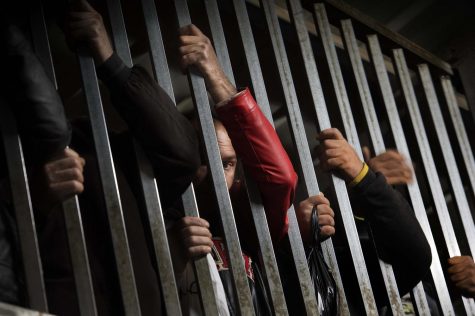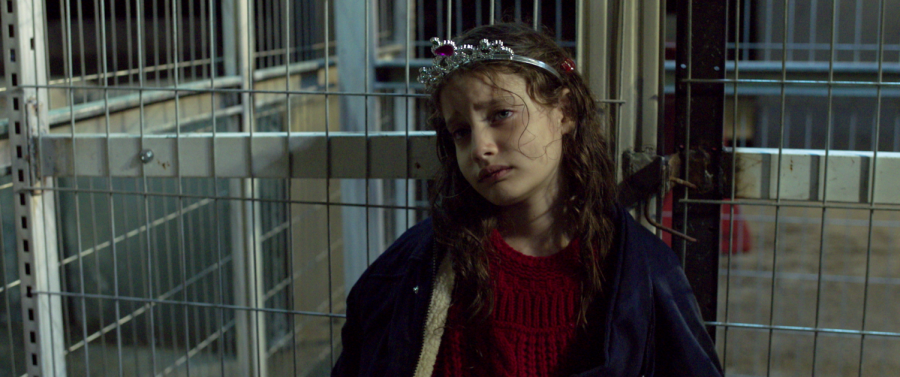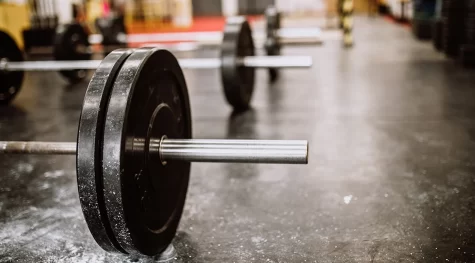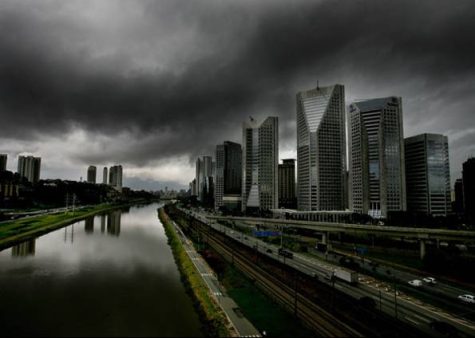Netflix’s “The Present” shows realistic perspective on Palestinian Struggles
The short film depicts a day in the life of a Palestinian family living in the “Palestinian Enclaves,” the rather small designated areas for Palestinians in the West Bank. The 2020 short film directed by Farah Nabulsi and co-written by Nabulsi, and Hind Shoufan, has been nominated for many awards, recently winning the BAFTA Award for Best Short Film.
The film revolves around a father’s journey with his daughter to buy an anniversary gift for his wife. The movie only lasts for 24 minutes, yet the father’s struggle lasts what feels like an eternity. What would ordinarily take us less than an hour to shop for a gift took this man an entire day.
It was hard holding back tears as you watch the pain and the mistreat that this Palestinian family has to go through to cross a checkpoint. The Checkpoint 300 near the city of Bethlehem is one of the many checkpoints in Israel, a checkpoint guarded heavily by armed Israeli soldiers. That’s how the film begins, with the father, Yusef, played by the Palestinian actor Saleh Bakri.
The checkpoint is overcrowded with Palestinians fearing for their lives while just trying to go about their daily routines. The soldiers feel no remorse calling them disgusting, mocking and shouting the most humiliating terms, the inhumane treatment, and treating them like caged animals are all things shown in the movie. The treatment of the Israeli soldiers to the Palestinians carried out so naturally evil.

Behind the scenes, Nabulsi had to risk filming the checkpoint without permission, assuring viewers that the only fiction part of the checkpoint scene is the protagonist, Yusef, “All the other hundreds of Palestinians you see there are actual Palestinians going to work at the crack of dawn.”
After winning the Jury Award Nabulsi shared a message on her social media account expressing her gratitude.
“I dedicated this award to the oppressed people of Palestine and all of those suffering racism and oppression, and to all indigenous people.”
In one of the heart-wrenching scenes, the daughter Yasmine, played by actor Maryam Kanj. She is seen in the back watching as the soldiers torment her father and force him to physically unwrap the gift and make him rip through every bag of groceries, checking for weapons and a reason to imprison him. You can see her sadness when her father tries to get through the door, which looks more like a jail cell door. The gift, a new fridge for her mother, is not small enough to fit through the doors giving the father yet another obstacle.
The tension in the scene intensifies as the father pleads with the Israeli soldiers to let him use the ramp, which is used only for cars and closed after certain hours. With exhaustion and teary eyes, he says in English, “my house, it’s just there, I just want to go home.” The father begs the soldiers to let him go through the ramp, and they all point their guns at him and

ask him to calm down. Meanwhile, his daughter is seen in the background bravely rolling the cart with the fridge across the ramp.
The worst part of it all is realizing that this film is entirely based on real-life occurrences. There are people as we speak, going through this right now. An article published by Aljazeera in 2019 described harsh conditions that Palestinian workers face every day while going through these checkpoints. One worker said, “Israel treats animals better than us.”
I am aware that the Israeli-Palestinian conflict can be controversial to many; however, a crisis like this shouldn’t be political, it shouldn’t be about religion, about being anti-Jew or anti-Muslim, this is a humanitarian issue. If you think this is a matter of taking sides, you are part of the problem.

Nicole Alarcon is a senior at Mercy College, majoring in journalism. Born in São Paulo, Brazil, she moved to the United States at 10-years-old.
Nicole...








